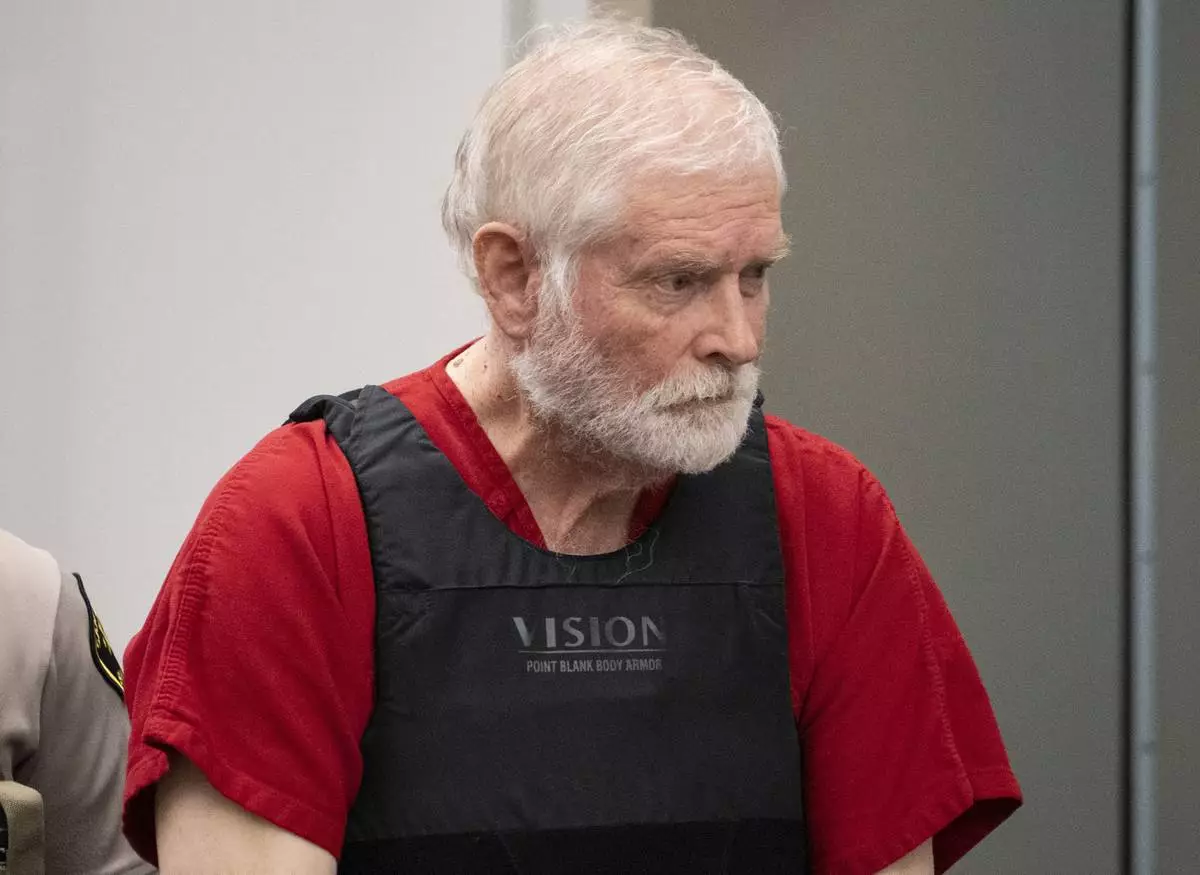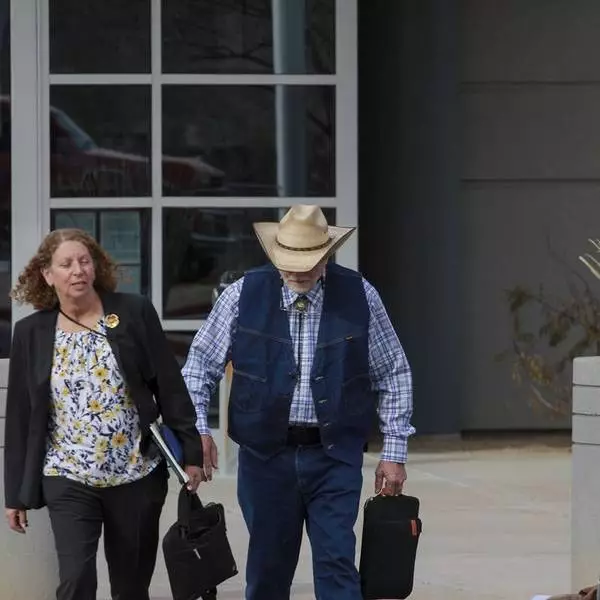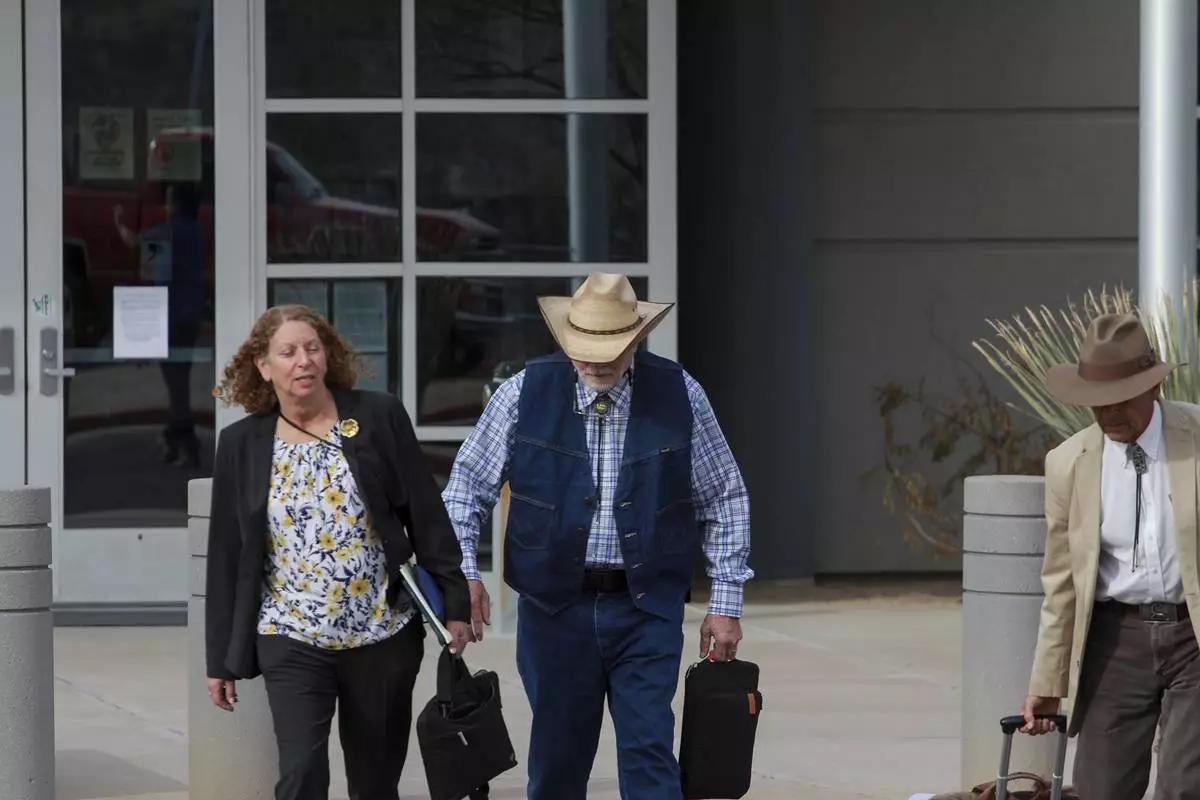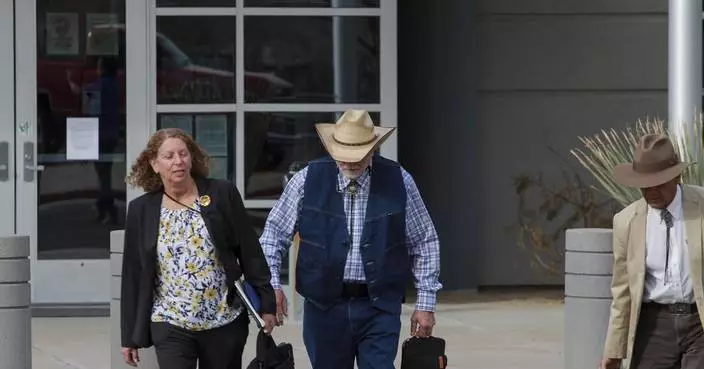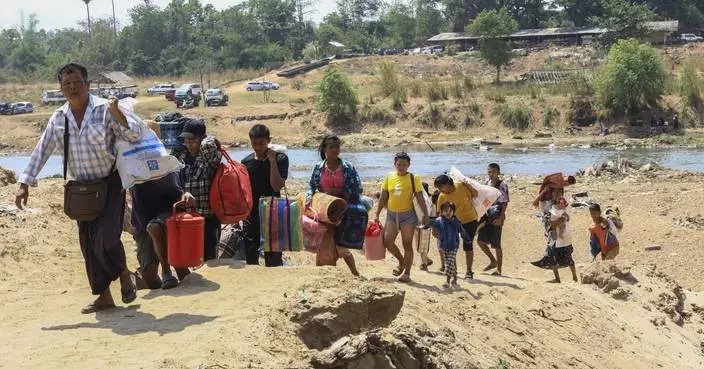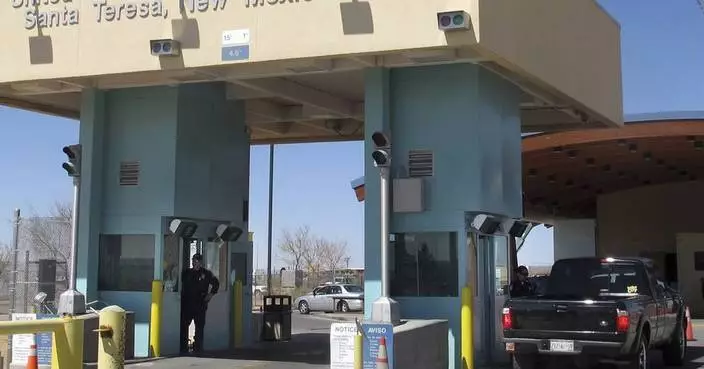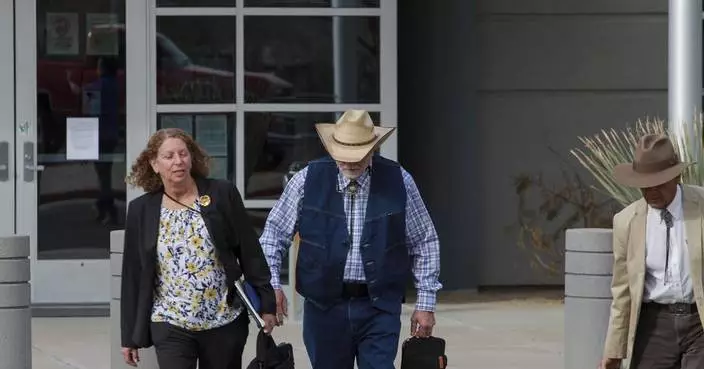House Republicans unveiled a "discussion draft" of a sweeping immigration bill that includes a path to citizenship for young immigrants, $25 billion in border security — including advance funds for President Donald Trump's wall with Mexico — and a provision aimed at addressing the crisis of family separations at the border.
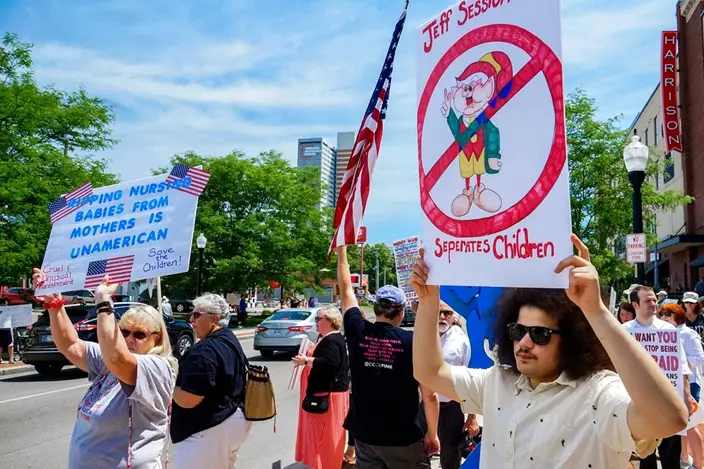
Demonstrators line up to protest U.S. Attorney General Jeff Sessions and immigration reform at Parkview Field in Fort Wayne, Ind. Thursday, June 14, 2018. (Mike Moore/The Journal-Gazette via AP)
Presented to lawmakers Thursday, the measure sticks to Trump's immigration priorities while trying to join the party's warring conservative and moderate factions on an issue that has divided the GOP for years. Passage is far from certain.
Speaker Paul Ryan wants to hold a vote as soon as next week to put the issue to rest before the midterm election. He called it a "very good compromise."
"Our members felt very, very passionate about having votes on policies they care about, and that is what we are doing," he said earlier Thursday. "So we're bringing legislation that's been carefully crafted and negotiated to the floor. We won't guarantee passage."
The 293-page bill represents the kind of ambitious overhaul of the immigration system Republicans have long considered but have been unable to turn into law. It shifts away from the nation's longtime preference for family immigration to a new system that prioritizes entry based on merits and skills. It beefs up border security, clamps down on illegal entries and reinforces other immigration laws.
To address widespread concern over the sharp rise of families being separated at the border, the measure proposes keeping children in detention with their parents, undoing 2-decade-old rules that limit the time minors can be held in custody. The White House sought the change.
Trump has been supportive of the House GOP's approach, but the legislation faces opposition from Democrats. It's is unlikely to be approved in the Senate.
House Minority Leader Nancy Pelosi, D-Calif., called the legislation "nothing more than a cruel codification of President Trump's anti-immigrant agenda that abandons our nation's heritage as a beacon of hope and opportunity."
Advocates for immigrants said the changes to family detentions were particularly severe. Kerri Talbot, the policy director at Immigration Hub, called it a "wish list" from top White House immigration adviser Stephen Miller that "would allow the Trump administration to jail children for long periods of time."
GOP leaders have said they may take up the family detentions issue separately, if needed, as the crisis of children being separated from their parents continues. Administration officials have said they need more money for detention beds to house the influx of immigrants resulting from the administration's "zero tolerance" policy of stepped-up border enforcement.
The main new element is a path to citizenship for as many as 1.8 million young people who have been living in the U.S. illegally since childhood. Many conservatives object to providing these immigrants with legal status, calling it amnesty for those who broke the rules to get here. They are commonly referred to as "Dreamers," based on never-passed proposals in Congress called the DREAM Act that would have provided similar protections for young immigrants.
Republicans were reluctant to tackle the "Dreamer" issue this year. But it took on new urgency when moderate Republicans pushed it to the fore after Trump ended the Obama-era Deferred Action for Childhood Arrivals program, exposing the young immigrants to deportation. A federal court case has temporarily allowed the program to keep running.
One Republican, Rep. Tom MacArthur of New Jersey, said he likes the way the compromise bill handles young people because "they're not getting in line in front of anyone else. That's fair." But, he added, because those people can eventually apply for citizenship, "they're not permanently sort of second-class residents of America."
Under the proposal, some 700,000 DACA recipients, as well as a broader group of young people who didn't register for the program, could apply for legal status, which would be valid for six years and renewable "indefinitely."
Eventually, young people, who are under 31 years old and have been in the country since at least June 2007, could begin to be awarded green cards based on a point system. It prioritizes education, English language proficiency, military service and continued employment. After that, they could apply for citizenship, as is the situation under current law for those with permanent legal status.
The new visa program, which is also available to other immigrants — including what lawmakers said is about 200,000 children who were brought to the U.S. legally by their parents — is contingent on the $25 billion in border security funding being fully provided.
In return, the proposal would eliminate several existing visa programs. Among them, family-related visas for the married children or adult siblings of U.S. citizens as well as the 55,000 visas now available under the diversity lottery system for immigrants from other represented countries, including many in Africa.
To beef up the border, the proposal provides the $25 billion the White House wants for security, including technology, roadways and money for the border wall. It authorizes National Guard troops at the U.S.-Mexico border. It also calls for the deployment of a biometric entry-exit system for all entry ports that has long been under debate.
The bill makes it easier for authorities to deport those here illegally, rather than allowing some to be released under certain circumstances.
For children who arrive unaccompanied by adults, it proposes "equal treatment" despite their country of origin. Advocates for immigrants said that opens the door for sending children from Central America swiftly back to their home countries, even when they are far away, the same way children from Mexico are turned back at the border.



